Above
the
Zodiac

Above
the
Zodiac

ASTROLOGY IN JEWISH THOUGHT
MATITYAHU GLAZERSON


Translated from  by M. Kalish
by M. Kalish
This book was set in 12 pt. Garamond by A-R Editions, Madison, WI.
Copyright 1997 by Matityahu Glazerson.
1 0 9 8 7 6 5 4 3
All rights reserved. Printed in the United States of America. No part of this book may be used or reproduced in any manner whatsoever without written permission from Jason Aronson Inc. except in the case of brief quotations in reviews for inclusion in a magazine, newspaper, or broadcast.
Library of Congress Cataloging-in-Publication Data
Glazerson, Matityahu.
Above the zodiac : astrology in Jewish thought / by Matityahu Glazerson.
p. cm.
Originally published: Jerusalem : M. Glazerson. 1985.
ISBN: 978-1-56821-935-6
1. Jewish astrology. I. Title.
BF1714.J4G56 1996
133.5'946dc21 96-52273
Manufactured in the United States of America. Jason Aronson Inc. offers books and cassettes. For information and catalog write to Jason Aronson Inc., 230 Livingston Street, Northvale, New Jersey 07647.
To elevate and remember the souls
of my honored parents
JULIUS and FAGEL SMOLLAN
May peace be upon them
and upon my beloved sister
LIEBA PEARL
who loved and shared her talent for music
with all for so many years in Johannesburg,
and in appreciation to the management, staff,
and voluntary workers and supporters of
SANDRINGHAM GARDENS
for their dedication and sacrifice in helping
the aged and infirm.
dedicated by
VICTOR JACOB SMOLLAN

Contents

Preface
The book Above the Zodiac has been written in the spirit of our previous works, whose purpose was to introduce the reader to those fundamental ideas within Judaism that would serve to enrich the readers appreciation of this great tradition.
The modern-day seeker of spirituality often feels that he must look to sources outside of Judaism to discover the paths to knowledge, wisdom, and spiritual awakening that, in actuality, have deep roots within the Jewish tradition.
In the case of the science of astrology, upon encountering those outside sources, we have observed that they forego the deep, timeless context within which these ideas are preserved in their Jewish framework, and instead reduce this study to the art of prediction, for the manipulation of the material world.
Within Jewish literature, the source for the spiritual meaning of the astrological constellations is the Sefer Yetzirah (The Book of Formation), whose authorship tradition attributes to the Patriarch Abraham. The Sefer Yetzirah contains the mysteries of the creation of the universe. Many commentaries have been written to elucidate this text. Among those used in this book are the commentaries of Rabbi Saadia Gaon, Nachmanides, and the Gaon of Vilna.
We have also relied on other books that expound the mystical meaning of the Jewish time cycle, such as Bnei Yisaschar, by Rabbi Yisachar of Dinov; Pri Tzadik, by Rabbi Zaddok Hakohen of Lublin; and others, as indicated in the text.
Introduction
The Practice of Judaism and the Science of Astrology
In the Code of Jewish Law (vol. 1, ch. 179, v. 1), we find a prohibition against the consultation of ones astrological forecast. From Rabbi Solomon Lurias commentary on Maimonides, it is inferred that this prohibition is derived from the biblical injunction against divination. According to Nachmanides, however, the source of the prohibition derives from the positive commandment of the Torah, Pure (whole) shall you be with the Lord your God.
Notwithstanding this prohibition, Rabbi Moshe Isserles (Code of Jewish Law, vol. 179, ch. 179, v. 2) hands down the decision that one who has heard a forecast from a competent astrologer may take this information into account, and ought not act contrary to the astrological influences, because one must not rely on miracles.
The Zohar (vol. 3, 216) states, From the time that the Torah was given to Israel, the Israelites were withdrawn from the rule of the stars and constellations; however, if one does not follow the ways of the Torah, he returns to be under the domain of these natural influences.
In the Talmud we find various statements regarding the influences of the astrological signs on the Jewish people. In Tractate Shabbat (129b) is recorded a prohibition against the medicinal drawing of blood on the third day of the week, being that on that day, the influence of Mars is dominant. (In the Romance languages, the name of the third day of the week is derived from the word Mars.) Rashi, in his commentary on the Talmud, explains that the prohibition is due to the fact that the astrological influence of Mars is associated with war, plague, and disaster.
In Tractate Nedarim (32a) it is stated, Our Patriarch Abraham said to the Holy One, blessed be He, I investigated my astrological fortune and found that I am due to have only one child (Ishmael). The continuation of this conversation is found in Tractate Shabbat (156a), where God answers Abraham, Release yourself from the influence of your stars, for Israel is beyond the constellations. Your ruling planet is Zedek (Jupiter), which appears in the West. Based on its influence you are not due any more children. I, however, will move the planet Zedek (Jupiter) to the East, so that you may father another child, as it is written, Who caused the illumination of Zedek to the East; may it be called on his behalf.
Nachmanides writes, The edicts of the stars constitute the basis of the hidden miracles mentioned in the Torah. However, the Jew, through the power of his choice and through his walking in the way of the Torah, may rise above the astrological influences.
The holy Ari, in explaining the possibility of normal birth after seven months pregnancy, states (Likutei Torah, 7), During these months, the fetus develops in its mothers womb through the power of the seven planets, for the Blessed God gave into their hands the rule over all human attributes. On the basis of this, we may answer one of the questions that the unbelievers ask with regard to the plural form used in the biblical passage, Let us make man in our image. This plural form refers to the storehouse of attributes that the planets impart to the developing fetus, each in its month. Therefore God told the planets, Let us make....
Many rabbis through the ages had a deep knowledge of astrology. Among them are Rabbis Saadia Gaon, Shmuel Hanagid, Avraham Ibn Ezra, Levi ben Gershom Nachmanides, Isaac Abarbanel, Isaac Aboab, Isaac Arena, and Shabtai Dolno (who, in his commentary on
Next page

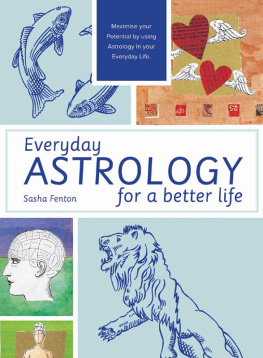
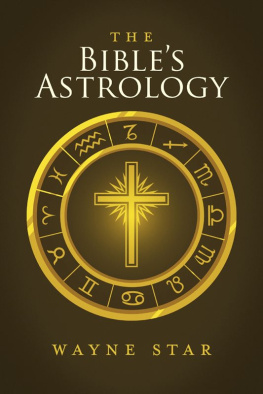
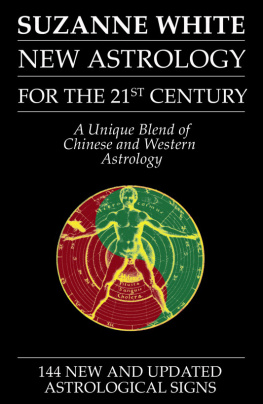
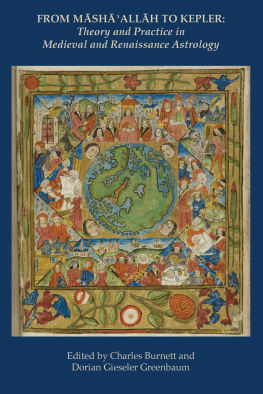
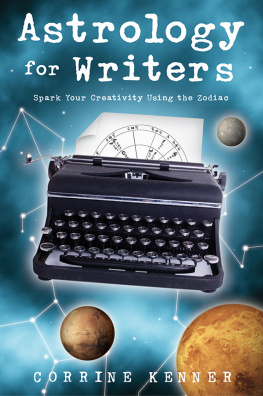
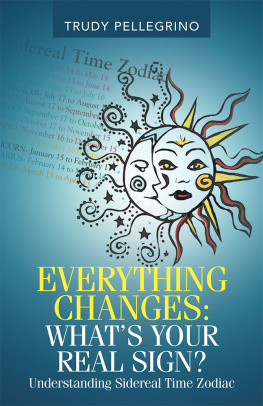
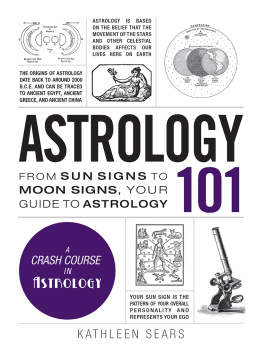




 by M. Kalish
by M. Kalish